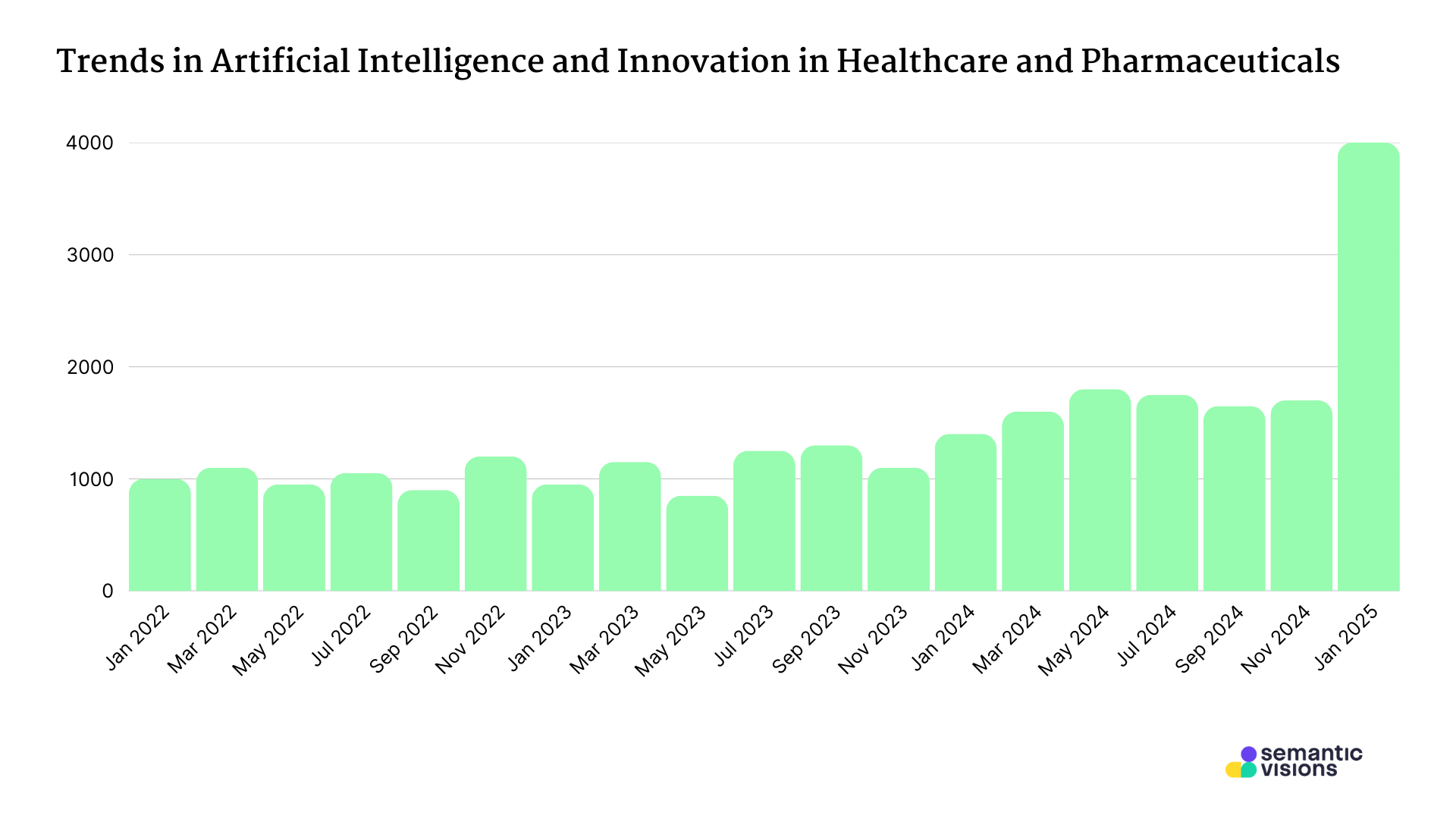Decision Intelligence: How AI Is Transforming Business and Healthcare

What Is Decision Intelligence and Why It Matters?
In an era where businesses and industries are driven by data, Decision Intelligence (DI) has emerged as a game-changer. DI is the next evolution of data-driven decision-making, integrating AI, machine learning, and data analytics to enhance human decision processes. Unlike traditional analytics, DI goes beyond descriptive insights, leveraging AI to simulate scenarios, predict future outcomes, and provide actionable recommendations.
The rise of Decision Intelligence is not just a trend—it’s an economic shift. According to market research, the global DI market is expected to reach $22.6 billion by 2030, growing at an impressive CAGR of 15–18%. Businesses that adopt DI can gain a competitive advantage by making faster, smarter, and more strategic decisions in real time.

The Growth of Decision Intelligence: Market Trends and Investments
Decision Intelligence is experiencing massive investment and adoption across industries. In 2023 alone, AI startups collectively raised over $50 billion, a significant portion of which was directed toward decision intelligence solutions. Companies are increasingly recognizing DI as a strategic necessity, not just an operational tool.
- Financial services, healthcare, and manufacturing are among the sectors investing heavily in DI solutions.
- DI enhances strategic planning, risk management, and market predictions, making businesses more agile in dynamic environments.
- Organizations leveraging DI improve operational efficiency by automating complex decision-making processes.
With investors and enterprises betting big on AI-driven decision-making, DI is poised to become a core pillar of corporate strategy over the next decade.

How Decision Intelligence Is Disrupting Key Industries
Healthcare: Smarter Diagnoses and Reduced Hospital Readmissions
- Predictive AI in healthcare has proven to enhance diagnosis accuracy and reduce hospital readmissions by up to 30%.
- AI-driven early warning systems help detect potential complications before they become critical.
- Personalized medicine powered by DI tailors treatment plans based on historical patient data, genetics, and real-time diagnostics.
Finance: Risk Management and Fraud Detection
- Banks and financial institutions leverage DI to detect fraud in real-time, preventing billions in financial losses.
- AI-powered decision models help assess credit risk, optimize investment strategies, and automate financial planning.
- DI enhances regulatory compliance by identifying anomalies and reducing human error in audits and reporting.
Supply Chain and Logistics: Real-Time Optimization
- Companies use DI to predict disruptions in supply chains, helping them navigate geopolitical risks and economic fluctuations.
- AI-driven logistics optimization reduces costs, minimizes delivery delays, and improves inventory management.
- DI provides market intelligence by analyzing global trends, helping businesses make informed procurement decisions.
The Future of Decision Intelligence: What’s Next?
The future of Decision Intelligence is marked by rapid technological advancements and increasing adoption across industries. One of the most promising developments is the integration of Generative AI, such as GPT-4, which is enhancing Decision Intelligence by providing context-aware recommendations, scenario simulations, and automated insights. As AI-driven assistants become more sophisticated, they are supporting executives in complex decision-making, reducing cognitive overload, and improving strategic planning.
Another critical factor in the evolution of DI is real-time global trend monitoring, a field where Semantic Visions stands out as a key player. With the ability to analyze millions of open-source data points across 12 languages, Semantic Visions helps businesses anticipate market shifts, geopolitical risks, and emerging industry disruptions. This capability is especially crucial for supply chain management, financial markets, and risk mitigation, where staying ahead of trends can mean the difference between success and failure.
As AI-powered decision-making grows more influential, concerns around regulation and ethics are becoming more pronounced. Ensuring transparency, fairness, and accountability in AI-driven decisions is a priority for governments and businesses alike. Regulatory frameworks will play a key role in mitigating bias and ensuring that automated decision-making systems remain trustworthy and compliant with global standards.
For investors, Decision Intelligence presents exciting opportunities in various fields, including risk management solutions, supply chain intelligence, and AI-powered healthcare decision support. Companies that leverage real-time market insights, such as those provided by Semantic Visions, will be better positioned to navigate the uncertainties of an AI-driven world while capitalizing on emerging trends.
Why Decision Intelligence Is the Next Big Thing
Decision Intelligence is revolutionizing how organizations operate, making AI-driven decision-making a fundamental business necessity rather than a luxury. With market growth projected at $22.6 billion by 2030, DI is set to become an essential component of corporate strategy.
Industries such as healthcare, finance, and logistics are already seeing tangible benefits, from improved patient outcomes to enhanced fraud detection and optimized supply chains. Meanwhile, solutions like Semantic Visions are enabling businesses to track global trends in real time, providing critical insights for risk mitigation and market positioning.
For investors, executives, and policymakers, Decision Intelligence is not just a trend—it is the future of business strategy. Companies that embrace DI today will be the ones shaping the industries of tomorrow.



